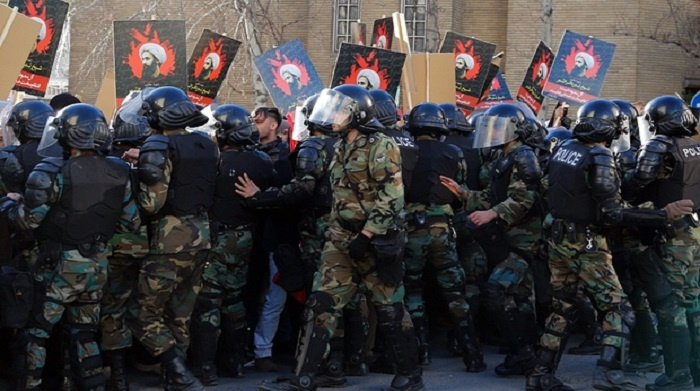Consequences of Cutting Ties with Iran

Saudi Arabia’s decision to sever its diplomatic relations with Iran is not independently made in Riyadh; it is a decision jointly made by the western front and Saudi Arabia and is premeditated.
The US and the West are attempting to deepen the rifts in the region; hence, this decision is made in the West, because one of the methods the West pursued to change the geography of the region was the cutting off of relations with Iran.
Saudi Arabia will suffer more from cutting its ties with Iran. Certainly, this measure will further damage the relations between the two countries and perhaps normalization of relations between Iran and Saudi Arabia will not happen until after the al-Saud regime.
Since months ago, there have been talks in US think tanks with regard to the necessity of ending the al-Saud reign in Saudi Arabia. The execution of Sheikh Nimr was done along the same line and was dictated by the West; although mass executions are always an indication of the fear of governments.
There will not be many changes at the regional level, because Saudi Arabia has, hitherto, taken all kinds of measures against Iran.
Besides hostile policies, Saudi Arabia has taken practical measures against Iran including bomb explosions in front of Iran’s embassy in Lebanon, and Saudi Arabia’s involvement has become clear in this matter. Another example was the bombardment of Iran’s embassy in Yemen which injured the staff of the embassy.
Saudi Arabia has realized that its policies in the crises in Iraq and Syria are failing, thus, it has this sort of passive reaction; they had arrested Sheikh Nimr three years ago and they could have executed him at that time when they had better conditions. Therefore, choosing the present time to execute Sheikh Nimr, when Saudi Arabia is being defeated in Yemen, Iraq and Syria, shows the passiveness of its reaction.
Cutting ties will be to Iran’s benefit and will help it to show the world that Iran has no relation with Saudi Arabia which supports terrorism.
The fact that an undemocratic monarchial regime which has no sign of democracy cuts its relations with Iran is to the benefit of Iran. The fact that a criminal regime, which has committed numerous crimes in Yemen and other countries, cuts its ties with Iran is to Iran’s benefit.
On the other hand, by taking this measure, Saudi Arabia proved that it is different from a country which supports its people, hence, it cannot tolerate having relations with Iran.
The West is attempting to bring a stable regime to Saudi Arabia, because they believe that their interests will not be provided by a regime which may be toppled by a revolution at any moment. Therefore, the decision to cut ties with Iran is made to change the regime in Saudi Arabia.
The police forces in Iran took the necessary measures, but people’s sentiments could not be controlled. Nonetheless, the government and the president of Iran took the correct positions and Saudi Arabia must have considered these positions.
Saudi Arabia and the US do not want Iran to participate in the Hajj ceremonies alongside other Muslims, thus, one of their primary demands is that Iranians not participate in the Hajj.
Contrary to the public perception in Iran which considers huge financial benefits for Saudi Arabia with the participation of Iranians in these ceremonies, this number is nothing compared to the huge volumes of oil sales this country has.
The fear of the al-Saud regime is related to the contacts of Iranians with other Muslims during the Hajj ceremonies.
It is too early to say whether this incident would impact world oil prices and it will not have serious effects under the present conditions unless the tension is intensified and moves toward military confrontations. However, it seems impossible that the West would allow Saudi Arabia to take such a measure. Therefore, this issue does not yet have the necessary capacity to impact the price of oil.

